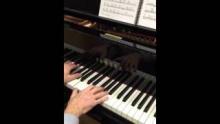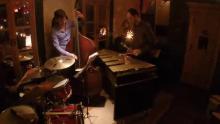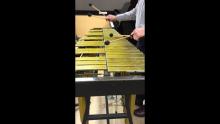February Recording Session
Hi All,
I went into the studio yesterday to record some tracks for an application I'm working on. The project was a little thrown together, but I think they turned out okay. I've been trying to put together some trio repertoire for about a year now. There are three tracks. Two are contrafacts I wrote and I play guitar on one of them (just for fun). I'd appreciate any feedback!
-Tristan
- Read more about February Recording Session
- 4 comments
- Log in or register to post comments








